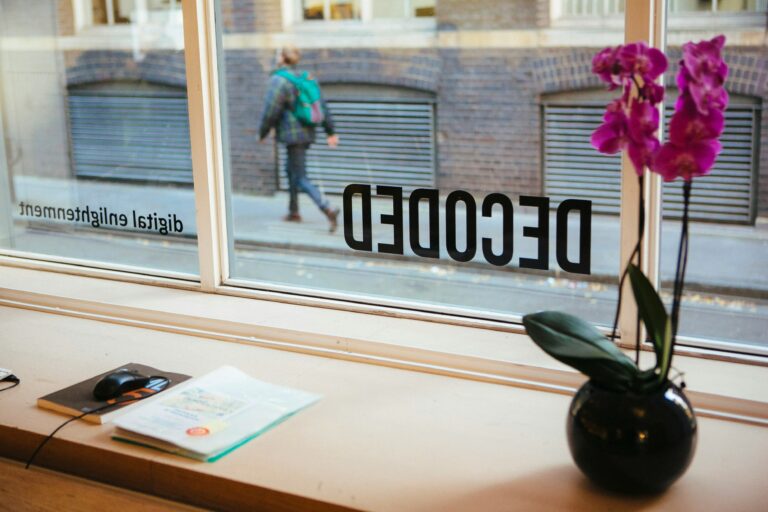Breaking Free from Overwork: 3 Micro Practices to Protect Your Energy
By Dr. Joan Flora, PCC
The real key to sustainable leadership isn’t doing more—it’s protecting your energy. Sarah became a principal because she wanted to inspire teachers, create a thriving school culture, and make a lasting impact on students. But somewhere along the way, the work consumed her.
If you’re a school leader, Sarah’s story probably feels familiar. The pressure is relentless, and the emotional labor of the role often outweighs the logistical tasks. Principals aren’t just managing schedules and budgets; they’re managing people, emotions, and crises while keeping themselves afloat.
Many principals fall into the trap of overwork, believing that working harder is the only way to keep up.
Why Protecting Your Energy Isn’t Selfish—It’s Strategic
One of the biggest misconceptions in school leadership is that taking care of yourself means you’re not doing enough for others. Principals often feel guilty for stepping away from their desks, letting a call go to voicemail, or saying “no” to another after-hours meeting. You might worry that setting boundaries makes you look disengaged or don’t care.
But think about this: Have you ever made a rushed decision because you were too drained to think clearly? Snapped at a staff member because you were running on fumes? Found yourself solving problems that others could have handled if you’d just stepped back? That’s what happens when you don’t protect your energy.
However, the best leaders aren’t the most overworked—they’re the most intentional. You become a clearer, steadier leader when you take breaks, delegate tasks, and permit yourself to reset. You make better decisions, respond instead of react, and create a culture where your staff feels empowered to set need-based boundaries (more on this topic in future articles).
Micro-practice #1: Before saying “yes” to another request, pause and ask yourself: “Will this help me lead effectively, or will it drain my energy to lead well?” That one question can help you start protecting your energy without guilt. If you say yes to something new, what are you saying no to?
Mark, a principal I work with, has been leading his school for over a decade. He prided himself on being available to his staff 24/7, answering emails late into the night, and stepping in whenever a problem arose. But after years of this relentless pace, he hit a breaking point. His stress affected his decision-making, and his exhaustion made him short-tempered with his team.
When he finally committed to protecting his energy, everything changed. He set boundaries on his availability, trusted his team to handle more responsibilities, and created pockets of recovery in his day. The result? He became a more present, thoughtful leader—and his school thrived.
The numbers have it: research supports what Mark experienced: Burned-out leaders are less effective. A 2022 survey by the RAND Corporation found that 85% of U.S. school principals experience job-related stress, and 48% report job burnout (“So Much Need,” 2023). These rates are significantly higher than leaders in other professions, where 35% report job-related stress. That’s a serious problem because chronic stress leads to poor decision-making, lower resilience, and increased absenteeism. Protecting your energy isn’t just a personal luxury—it’s an investment in your work.
Why Burnout Isn’t Just About Workload—It’s About Emotional Overload
While workload is a factor, the real culprit of burnout is emotional overload—the constant weight of making tough decisions, managing conflicts, and absorbing the stress of those around you. Unlike physical fatigue, emotional exhaustion doesn’t just make you tired—it clouds your judgment, drains your motivation, and makes everyday challenges feel insurmountable. When your emotional reserves are depleted, you are more likely to react instead of respond to problems, leading to hasty or defensive decisions. You might take on other people’s stress, making it harder to maintain perspective. Or, like many school leaders, lose confidence in your leadership.
Micro-practice #2: Reduce Emotional Overload
- Name It to Tame It – When a situation feels overwhelming, pause and name your emotions. Is it frustration? Anxiety? Guilt? Simply labeling your emotions and saying, “I’m feeling _________” helps reduce their intensity (Siegel, 2011, 2022).
- Implement Micro-Recoveries – Take five-minute resets between high-stress meetings. Step outside, stretch, breathe—anything that helps you shift emotional gears.
- Shift from Fixer to Facilitator – Not every problem needs your immediate solution. Encourage teachers and staff to bring potential solutions when they present problems rather than expecting you to solve everything.
By understanding emotional overload, you can begin to protect your energy for what truly matters—visionary leadership.
The Role of Emotional Intelligence in Sustainable Leadership
One of the most potent tools a principal can develop is emotional intelligence (EQ)—recognizing and understanding emotions in yourself and others. Imagine this: A frustrated teacher storms into your office, venting about a last-minute schedule change. If your stress levels are maxed out, you might react defensively or rush to fix the problem just to move on. However, a principal with high EQ pauses, listens, and responds with clarity, turning the moment into an opportunity for problem-solving rather than conflict.
High EQ isn’t about suppressing emotions—it’s about using them as data to lead effectively. When you understand your emotional hot buttons, you don’t take complaints personally, you don’t spiral into self-doubt after tough conversations, and you don’t let stress dictate your decisions. Instead, you stay composed, make clearer choices, and create an environment where people feel heard and supported.
A simple step to strengthen your EQ: The next time you feel emotionally reactive to a situation, ask: “What emotion am I feeling, and what is it telling me?” This shift—from reacting to reflecting—can make a huge difference in how you lead under pressure.
Examples of EQ Leadership
- A principal notices a teacher is struggling, but instead of assuming incompetence, he asks, “What support would help you right now?”
- Instead of reacting defensively to parent complaints, he acknowledges concerns and looks for solutions without personalizing criticism.
- When overwhelmed by district demands, he assesses what’s truly urgent and delegates or defers what can wait.
The Benefits of Leading with Emotional Intelligence:
- Less stress, better decisions. Principals who regulate their emotions avoid knee-jerk reactions and lead with clarity.
- Stronger relationships. Staff and students feel safer and more supported under emotionally steady leadership.
- Greater resilience. Instead of being drained by conflict and challenges, emotionally intelligent leaders adapt and grow from them.
When principals develop emotional intelligence, they turn stress into strategy—leading not just from expertise but from a place of stability and confidence.
School leadership demands quick thinking, high emotional intelligence, and the ability to navigate complex situations. Yet, here’s the dilemma: our brains are incredibly efficient but remarkably inaccurate. When faced with a challenge—an upset teacher, a demanding parent, a district mandate that feels impossible—your brain instinctively fills in the gaps. It jumps to conclusions based on past experiences, assumes intent where there may be none, and processes stress as if every problem is an emergency. This efficiency keeps us moving forward but also skews our perception and can lead to reactive, exhausting decisions that cost you energy.
This is why protecting your energy, developing emotional intelligence, and taking intentional pauses matter.
Micro-practice #3: Pump the brakes and give yourself the space to question:
- Is this situation truly as urgent as it feels?
- Am I seeing this issue clearly, or am I reacting based on stress and exhaustion?
- What’s another way to interpret what’s happening right now?
Anaïs Nin once wrote, “We don’t see things as they are; we see them as we are.” This truth is at the emotional heart of school leadership.
When you’re exhausted and emotionally overloaded, everything feels harder, and every challenge feels personal. Sarah, like so many principals, started her leadership journey with passion and purpose. The key to sustaining that passion isn’t pushing through exhaustion—it’s learning to lead with energy, intention, and emotional clarity.
The takeaway? Outstanding leadership isn’t about pushing through at all costs—it’s about leading with clarity, not just efficiency. The more you protect your energy and train your mind to pause, the better decisions you’ll make and the more impact you’ll have.
Want to Get Even Better at This?
Understanding emotions is one thing. Applying this in real conversations? That’s where real change happens.
If you want to:
- Learn how to express emotions in a way that gets your needs met
- Break the cycle of emotional reactivity
- Develop emotional intelligence (EQ) that transforms relationships
Schedule a complimentary session. Book now.







